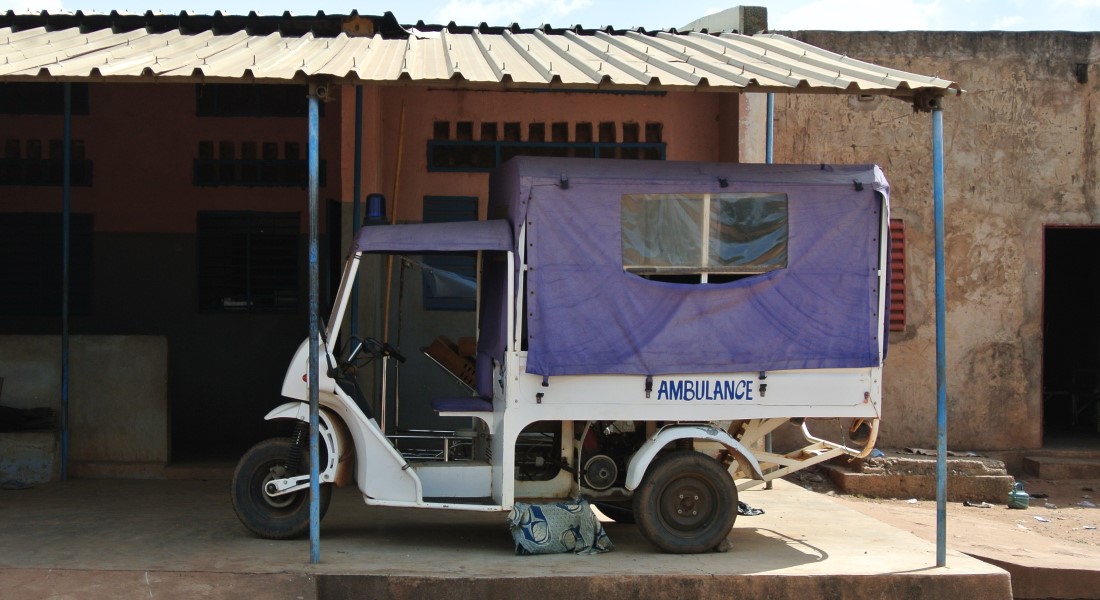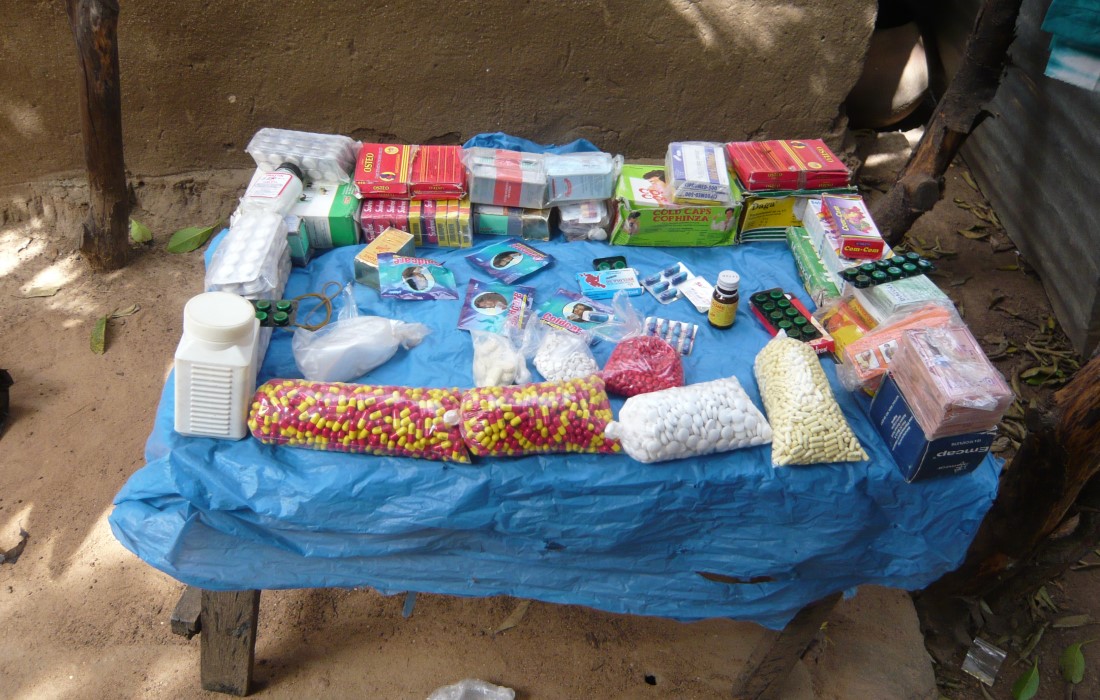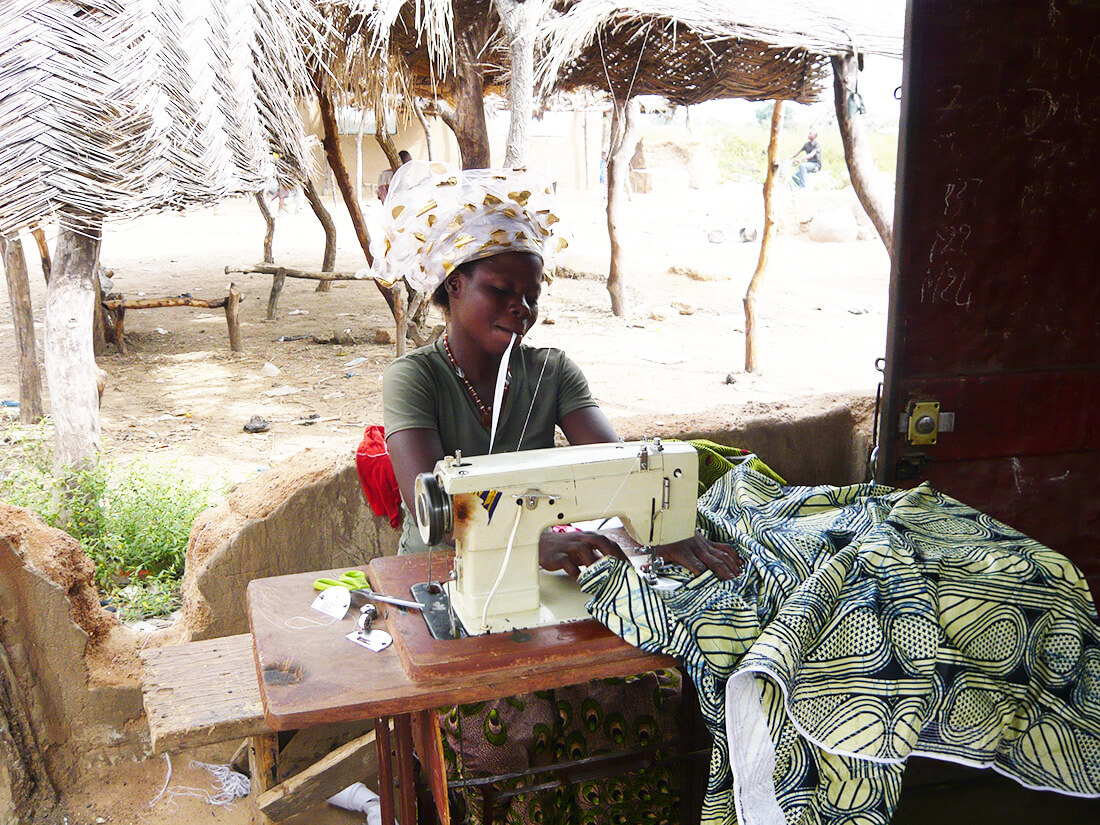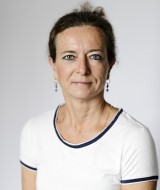Interview: Burkina Faso's health crisis has major implications for the rest of the world
For nearly 30 years, Helle Samuelsen has studied the health crisis in Burkina Faso and how it affects daily life in rural areas. But Burkina Faso's challenges have wider implications, she warns. The whole Sahel region is a hotspot for explosive crises that challenge other parts of the world, including our own.

Caroline's son was just one year old when he died. It happened suddenly and, according to Caroline, without warning. She was carrying him on her back on her way home from church and found him dead when she got home.
"The child died because my mother-in-law performed a lot of sacrifices. Each time she hailed her ancestors to take the life of the child," is Caroline's own explanation. She believes that her mother-in-law wanted the child dead because Caroline would give him a Christian upbringing, even though her husband is a Muslim.
The story of Caroline, or simply Caro, is told by anthropologist Helle Samuelsen in her new book Fragile Futures, based on 28 years of work and four major research projects in Burkina Faso. The last project has just ended, but her work in the West African country continues with a new Danida grant.
"I think Caro should have gone to the hospital with the baby. Even after the baby died, to find out the cause," says Helle Samuelsen about Caroline's tragedy. "But for her, it wasn't obvious because there were some family conflicts. You have to understand that in such a family there is a hierarchy, and she's at the bottom and has no money of her own. So she can't just make decisions on her own.
Burkina Faso is one of the poorest countries in the world, with high population growth and several parallel crises (see box). But it is Burkina Faso's chronic health crisis that has fascinated Helle Samuelsen ever since she first landed in the capital, Ouagadougou, as a PhD student in 1996 and travelled into the countryside.
A crisis that is not only about epidemics, malaria and malnutrition, but also about social conditions and spiritual beliefs, as Caroline's story illustrates.
"Before my first fieldwork, I had read about high mortality and morbidity in the villages, where 80 per cent of the population lives, so I wondered why there weren't long queues outside the health centre. So my first question was: What were people doing instead? I started researching and interviewing all kinds of traditional healers and mothers of small sick children to find out what was really going on.
Why should we, as Danes or Europeans, really care about life in Burkina Faso?
"We have to, because the world is connected. We saw this clearly during the Corona pandemic, where the outbreak in China quickly spread to the rest of the world. But also because the entire Sahel region south of the Sahara is a hotspot for explosive crises that can have major consequences for other parts of the world," says Helle Samuelsen.
"There is a real humanitarian crisis in the region and the flow of migrants is increasing. Young men in particular are travelling to other African countries or to Europe to find work because conditions at home are so bad. They try their luck and hope to send money back to their families.
Burkina Faso's development through the eyes of a family
A common thread in Helle Samuelsen's projects has been to explore how listening to and involving local people can better mitigate health crises - and ultimately benefit the international community. Her most recent project, for example, involved developing local surveillance systems in villages to detect early signs of new epidemics.
But a special aspect of Helle Samuelsen's work has been the close relationship she has developed with one family, Thomas and Beatrice Bancé and their seven children, including Caroline.
It is common for anthropologists to get close to people during fieldwork, but almost three decades of contact with one family is unusual – and, according to Helle Samuelsen, a great strength. It has put other data into perspective and shed light on how a family develops and deals with illness on a daily basis.
"For example, there are cycle breakers, as we know from Denmark. Two girls in the family are studying at university, while one son is a migrant worker in Libya. The long contact also means that I better understand why people in the village don't necessarily go to the health centre when, for example, the youngest son has malaria for the third time in a year, but try something else first, like collecting herbs in the bush or just buying a few tablets at the local market.
The personal commitment
The study of people's culture and way of life through fieldwork is a cornerstone of anthropology. Helle Samuelsen's long and close relationship with the Bancé family (whose names have been anonymised) puts the method to the test: how do you handle the dual role of researcher and close family friend?
According to Helle Samuelsen, it is impossible in practice to maintain a strict professional distance:
"As anthropologists, we use ourselves as tools in the field, so in Burkina Faso I am both 'anthropological' Helle and 'personal' Helle. You can't separate the two. I have a close relationship with the family and just yesterday I was on WhatsApp with the youngest daughter. But at the same time, as an anthropologist, you collect your empirical data and analyse your interviews. The analytical process gives you a distance from the material.
Close contact with a family with fewer resources also raises the question of whether a relatively privileged researcher should step in and help, for example financially. For Helle Samuelsen, it has also been a balancing act.
"There have been many dilemmas along the way. I've often driven everyone from the village to the hospital. I have also paid for the education of the children in the family and others in the village. But it's a very difficult balance.
Fear of humiliation
In addition to social and cultural barriers, there are simple practical reasons why the Bancé family and others in the village do not always visit the health centre. One problem is uncertainty about the cost of treatment, even though it is free for children under five.
"You may be asked to buy the medicine for your children yourself because the health centre it is out of stock - and then it's no longer free. And if you don't have the money, it's humiliating - signalling your inability to properly take care of your family," says Helle Samuelsen.

Another problem is the uneven quality of public health services. Helle Samuelsen likes to speak of an 'absent-present' state when describing the relationship between the population and the public sector in Burkina Faso. They experience a state that is both absent and present.
"The reality is that the institutions are there in principle, but they are often half empty. The buildings may be there. The staff may be there, but people may be doing other things because of their low salaries. Or there is a lack of equipment. The health centre often only has a scale, a thermometer and a rapid test for malaria," she explains.
It's really important for me to show that people in rural Burkina Faso are actively working with hope and showing a strong, pragmatic will to act
"My work therefore points to the need both to improve services and to make the price structure more transparent. On the other hand, I also find that everyone actually wants a well-functioning state and some basic public goods: A health centre that works. A school that educates your children. A municipal office where you can complain if your neighbour has taken your cattle.
Is there anything about life in Burkina Faso that we can learn from in Denmark?
"I think it's important to understand how social factors and family circumstances play a big role in people's health behaviour, even in Denmark. We can also go to Matas (retail store with a limited range of medicinal products) instead of the doctor. Everyone can act pragmatically in a way that is not necessarily rational, but still makes sense when you look at it from the individual's perspective."
"At the same time, it's really important for me to show that people in rural Burkina Faso are actively working with hope and showing a strong, pragmatic will to act. I think their ability to cope with uncertainty is impressive. But my research also shows that it's hard work when the state can't provide even the most basic public services.

We should focus more on Africa
The ability to cope with uncertainty and faith in the future are perhaps among the few current bright spots in Burkina Faso. According to Helle Samuelsen, the future looks bleak. At the moment, for example, the father of the family, Thomas, cannot get to some of his remote fields due to security concerns.
"But history has also shown that the people of Burkina Faso will not put up with anything. After all, the former president, Blaise Compaoré, who was in power for 27 years, was thrown out in 2014 after a popular uprising. And people are very reflective about what's going on. There are also some big positive changes happening in Burkina Faso. More people are getting an education, and more people in rural areas have access to electricity and mobile phones.
We need a better understanding of what's happening on the African continent right now.
"The story I tell in Fragile Futures is just a small contribution to understanding how micro-politics in a family and village are connected to national and international politics. There is a huge need to invest more in education and basic health.
There is even talk that the 21st century could be Africa's, not only because of the continent's population growth, but also because of some positive examples of economic progress, such as in Ghana.
"Yes, and I don't think we are sufficiently aware of that. Neither are Danish politicians. We need a better understanding of what's happening on the African continent right now, also geopolitically. Things are moving very fast. The Sahel countries, including Burkina Faso, have gone from a close alliance with Europe to an alliance with Russia. That's why it's so important to keep your finger on the pulse and follow what's happening in Africa.
-----
Capacity building projects

As a health anthropologist in the Department of Anthropology, Helle Samuelsen has led or participated in a wide range of research projects involving fieldwork and visits to Burkina Faso, Ghana, Kenya, Pakistan, Denmark, Tanzania and Vietnam.
However, West Africa and Burkina Faso in particular have been at the centre of the work, which will continue in the coming years with the Danida-supported project 'Promoting Climate Change Adaptation in a Context of Multiple Crises in Burkina Faso: The role of civil servants'.
All projects in Burkina Faso have also focused on building and strengthening local research capacity. One of the ways in which this was done was by involving and training a large number of PhD students in the individual projects.
Contact
Helle Samuelsen
Associate Professor
Department of Anthropology
Mail: H.Samuelsen@anthro.ku.dk
Phone: +45 35 32 78 77
Mobile: +45 28 15 52 33
Søren Bang
Journalist
Faculty of Social Sciences
Mail: sba@samf.ku.dk
Mobile: +45 29 21 09 73
